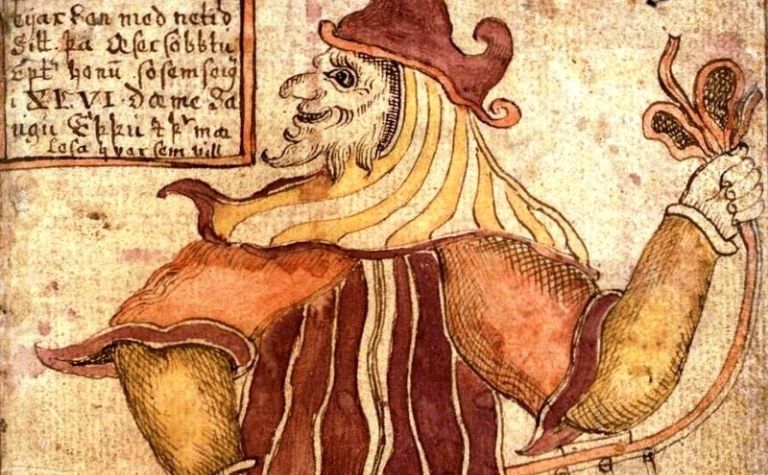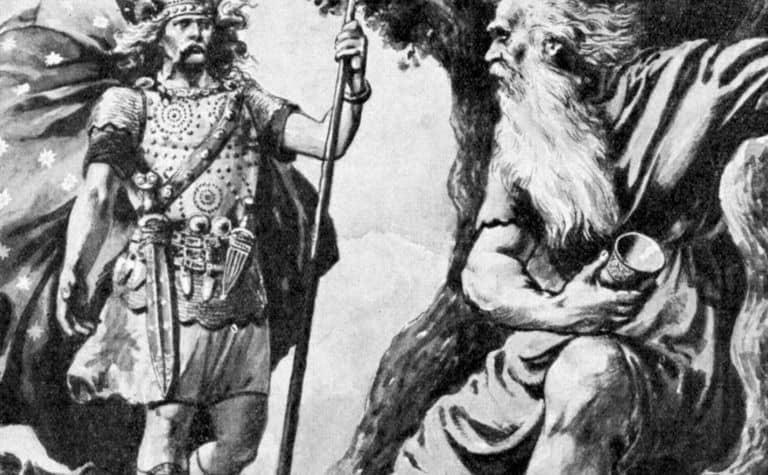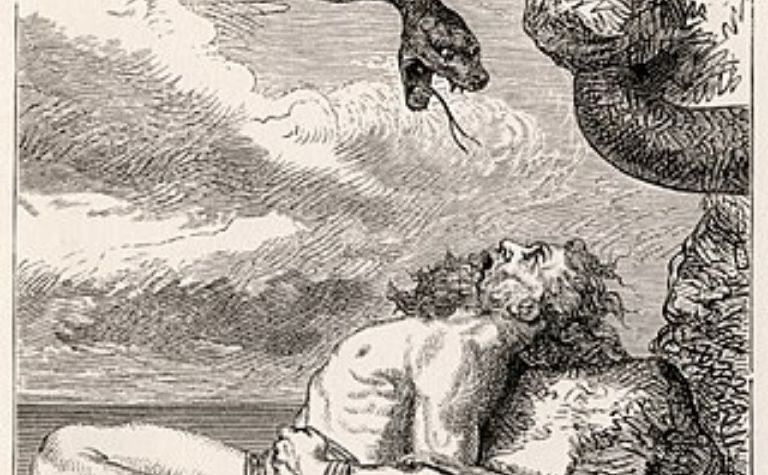The Marvel Cinematic Universe (MCU) has popularized many characters from Norse mythology, such as Odin, Thor, and Loki.
That leads many people to believe that Marvel, or its parent company, Disney, owns Norse mythology. Is there any truth to that?
Neither Marvel nor Disney owns Norse mythology. The Norse myths existed centuries before the MCU started using their characters in its movies and comics.
As such, the tales are in the public domain, free for anyone to use as they see fit. Disney does own its version of Norse characters, though.
This article will explain precisely what elements of the Norse myths Disney has trademarked and why it does not and will never own Norse mythology as a whole.
Also, see Norse Gods vs. Greek Gods Compared to learn more.

Which Parts of Norse Mythology Does Disney/Marvel Own?
Marvel doesn’t own Norse mythology. However, that doesn’t mean that Marvel’s parent company, Disney, hasn’t trademarked several things related to Norse mythology.
Marvel and Disney own their versions of the Norse mythology characters, such as Tom Hiddleston’s Loki and Chris Hemsworth’s Thor.
They also own the movies and comics they put out and the specific storylines and representations of the characters they created.
The Washington Post explains it best by saying, “The trademarks [Disney has on the Norse gods] specifically apply to Disney’s business and commercial works, not the Norse gods in general: Disney can claim only its interpretation of any god.” [1]
So what does that mean exactly? Well, it means that people can’t use images, costumes, or media from the MCU for profit without Disney’s express permission.
In other words, anyone can draw a picture of the Norse god Loki and sell it unless that picture looks like Marvel’s depiction of Loki.
Anyone can create a piece of jewelry and market it as ‘Thor’s Mjolnir necklace’ as long as the hammer is that person’s unique design and doesn’t look like Mjolnir from the MCU.
Furthermore, anyone can write new stories, create new comics, or even make new movies about the Norse gods.
They just can’t draw or depict the characters to look anything like Marvel’s characters or use elements of Marvel’s storylines (unless it falls under fair use). [2]
Also, see Norse Tattoos to Avoid to learn more.

Why Can’t Disney Trademark Norse Mythology?
Disney can’t trademark Norse mythology because it’s in the public domain.
Something in the public domain isn’t protected by U.S. copyright laws and can be accessed and used by anyone without permission from the author.
There are several ways things can enter the public domain. These include:
- The work’s author died more than 70 years ago.
- The United States government created the work.
- The thing in question was never in printed or “tangible” form. (i.e., a speech the speaker never wrote down or a lecture given orally in a class)
- The work was published before March 1989 and didn’t have an official copyright notice.
- The work isn’t sufficiently original. [3]
In the case of Norse mythology, it’s in the public domain for a few different reasons, the most obvious being that the work’s author has been dead for more than 70 years.
Norse mythology, like most mythologies, was passed down orally years before anyone ever wrote it down.
Furthermore, the written works from which people get most Norse mythology tales are the Eddas, both written several hundred years ago.
Therefore, no one, including Disney and Marvel, can copyright or trademark any Norse mythology tales. They can only trademark and copyright their versions of those tales.
The same is true for Greek mythology, African mythology, Native American mythology, and all other forms of ancient myths.
It’s also true for various religions and their sacred texts, including Christianity and the Bible and Islam and the Quran.
It also includes some of the world’s most famous and well-known literature, such as:
- Anything by William Shakespeare
- The Great Gatsby by F. Scott Fitzgerald
- Dracula by Bram Stoker
- Frankenstein by Mary Shelley
- Anything by Charles Dickens
- Anything by Jane Austen
- Anything by Mark Twain published before 1923
- The Time Machine by H.G. Wells
- The Count of Monte Cristo by Alexandre Dumas
- Anything by Dante Alighieri
- Anything by Christopher Marlowe
- The King Arthur legends
These are only a small fraction of the numerous books available in the public domain. [4]
That not only means that anyone can read them for free, it also means that anyone can adapt them into something new without having to ask permission.
That’s why there are so many books, movies, and television shows based on the King Arthur legends and why so many theater companies perform variations of Shakespeare.
Also, see 7 Weapons Mentioned in Norse Mythology to learn more.

Do Norse Characters and Tales Exist Outside of the MCU?
Norse characters and tales do exist outside the MCU and not just in the Eddas or the Volsungs.
Numerous authors, directors, producers, and screenwriters have adapted versions of Norse characters and myths into more modern retellings.
The following sections will look at some of the most popular media, including the Norse myths or characters.
Norse Myths and Characters in Books
In 2017, Neil Gaiman published a new book of the Norse myths, retelling them mostly in their original forms, only with his unique Gaiman flair in the writing style. He called it simply Norse Mythology.
Years earlier, he also included many characters from Norse mythology in his popular bestseller American Gods and its sort of sequel, Anansi Boys.
However, Gaiman wasn’t the only author to incorporate Norse deities into literature. Other examples include:
- Rick Riordan’s Magnus Chase series
- The Long Dark Tea-Time of the Soul by Douglas Adams
- War of the Gods by Poul Anderson
- Joanne M. Harris’ Loki series
- K.L. Armstrong’s The Blackwell Pages series
- Loki by Mike Vasich
Norse Myths and Characters in Movies
The following movies all incorporate the Norse myths or characters from the myths into their stories: [5] [6]
- Valhalla Rising (2009)
- Mortal (2020)
- Northmen (2014)
- Valhalla (2019)
- Legends of Valhalla: Thor (2011)
- The Mask (1994)
- Ragnarok (2013)
Norse Myths and Characters in TV Shows
There are also plenty of TV shows that feature the Norse myths and characters, including 2017’s American Gods, based on the Neil Gaiman book of the same name. Here are some others:
- The Almighty Johnsons
- Ragnarok
- Vikings
- Vikings: Valhalla
- Clash of the Gods
Final Thoughts
Neither Disney nor Marvel owns Norse mythology. However, they have trademarked their versions of the Norse gods.
Also, see Norse Mythology vs. Christianity: Differences to learn more.
